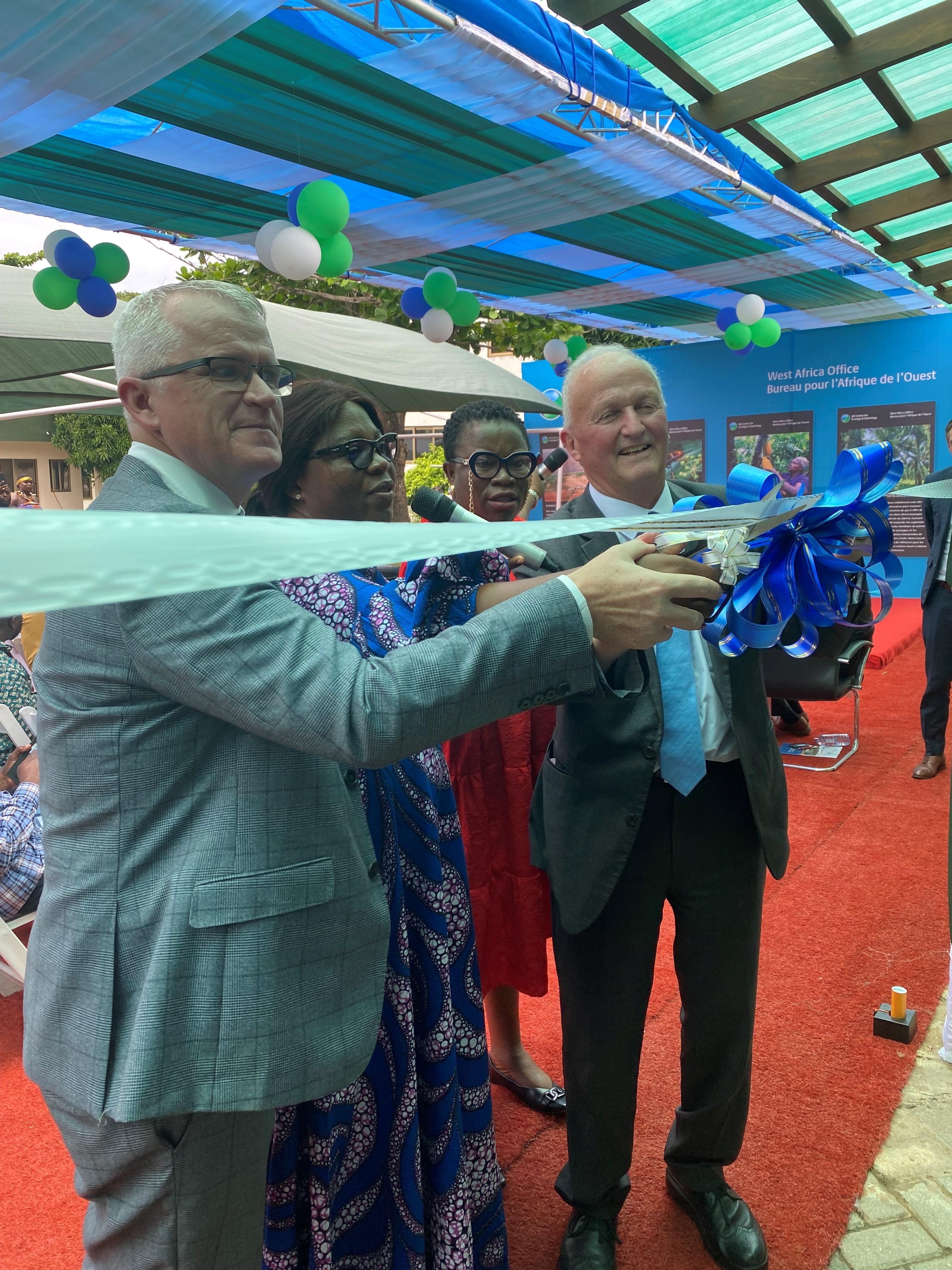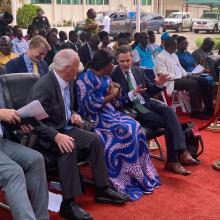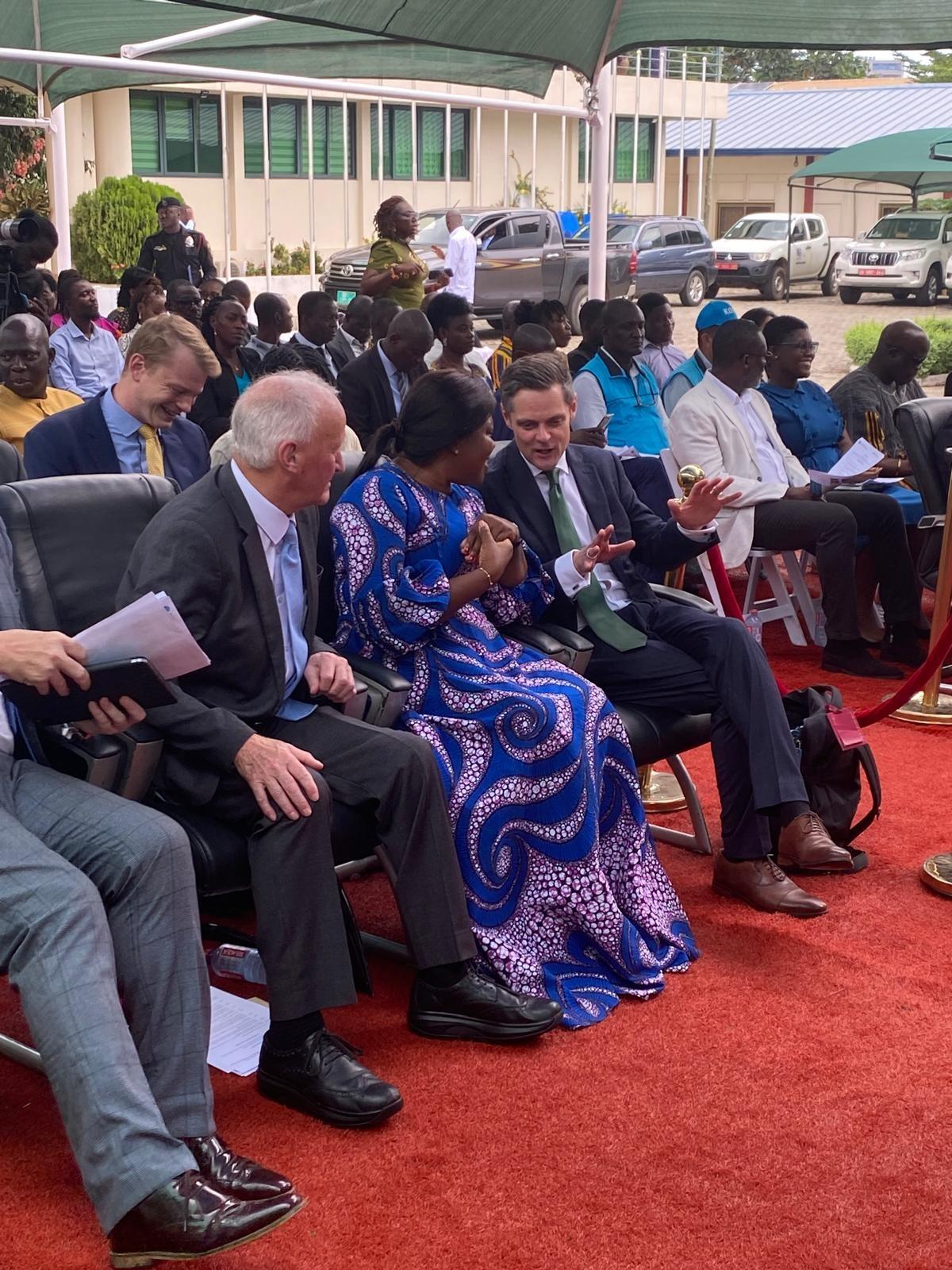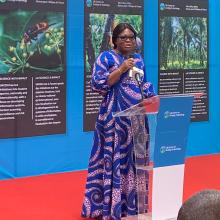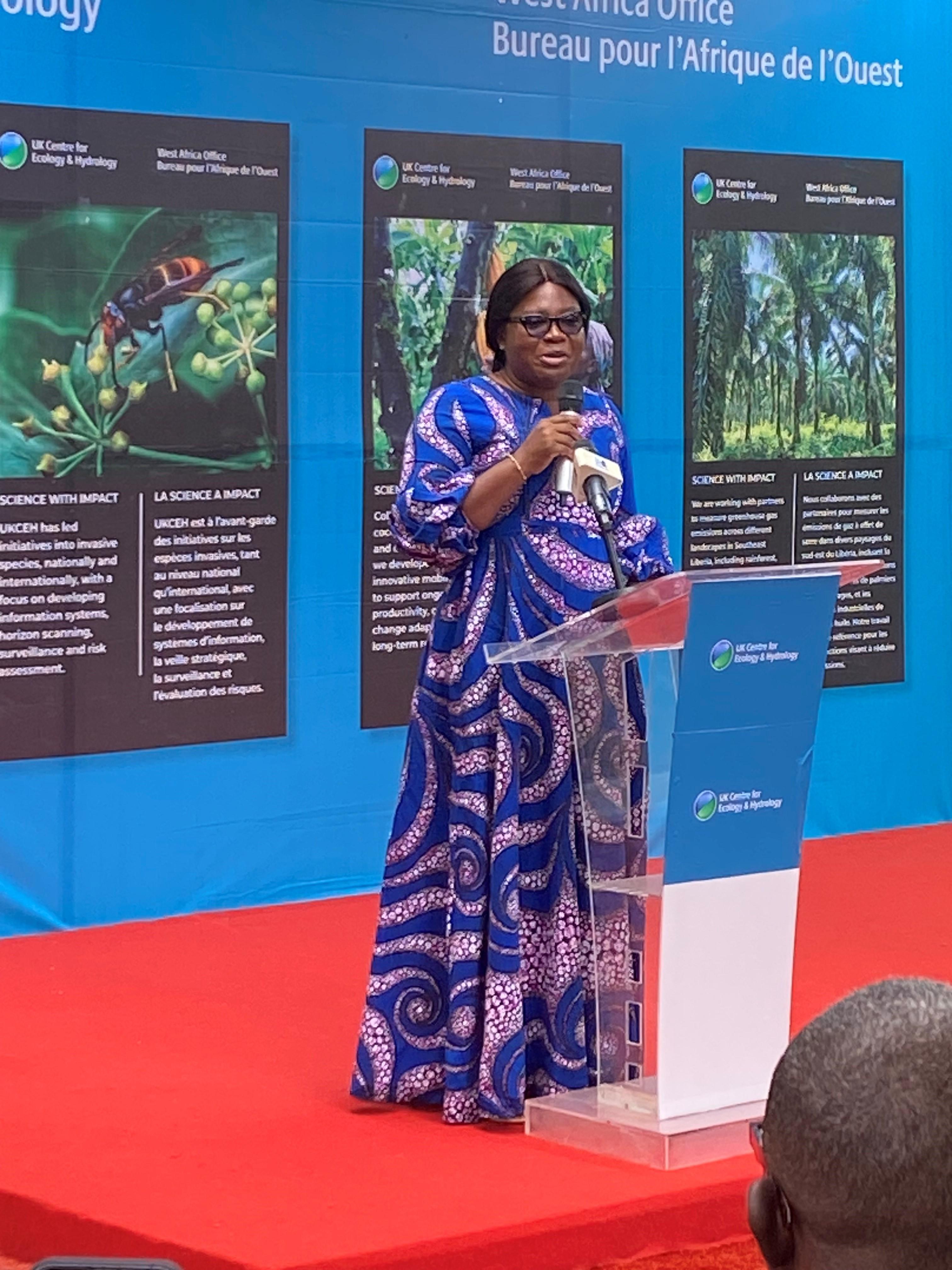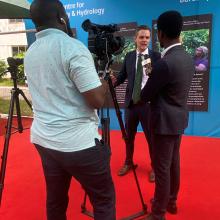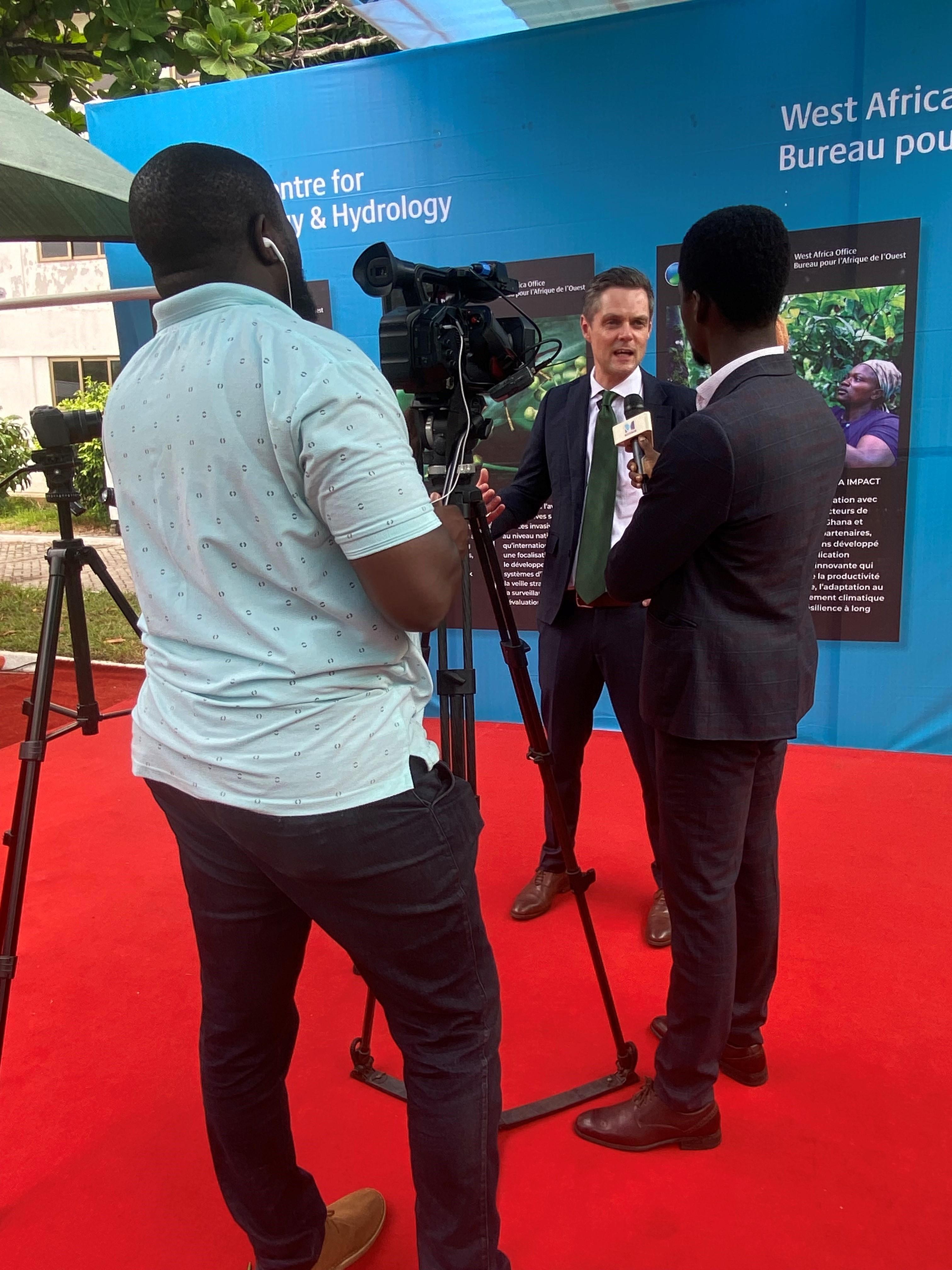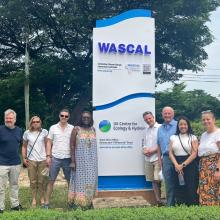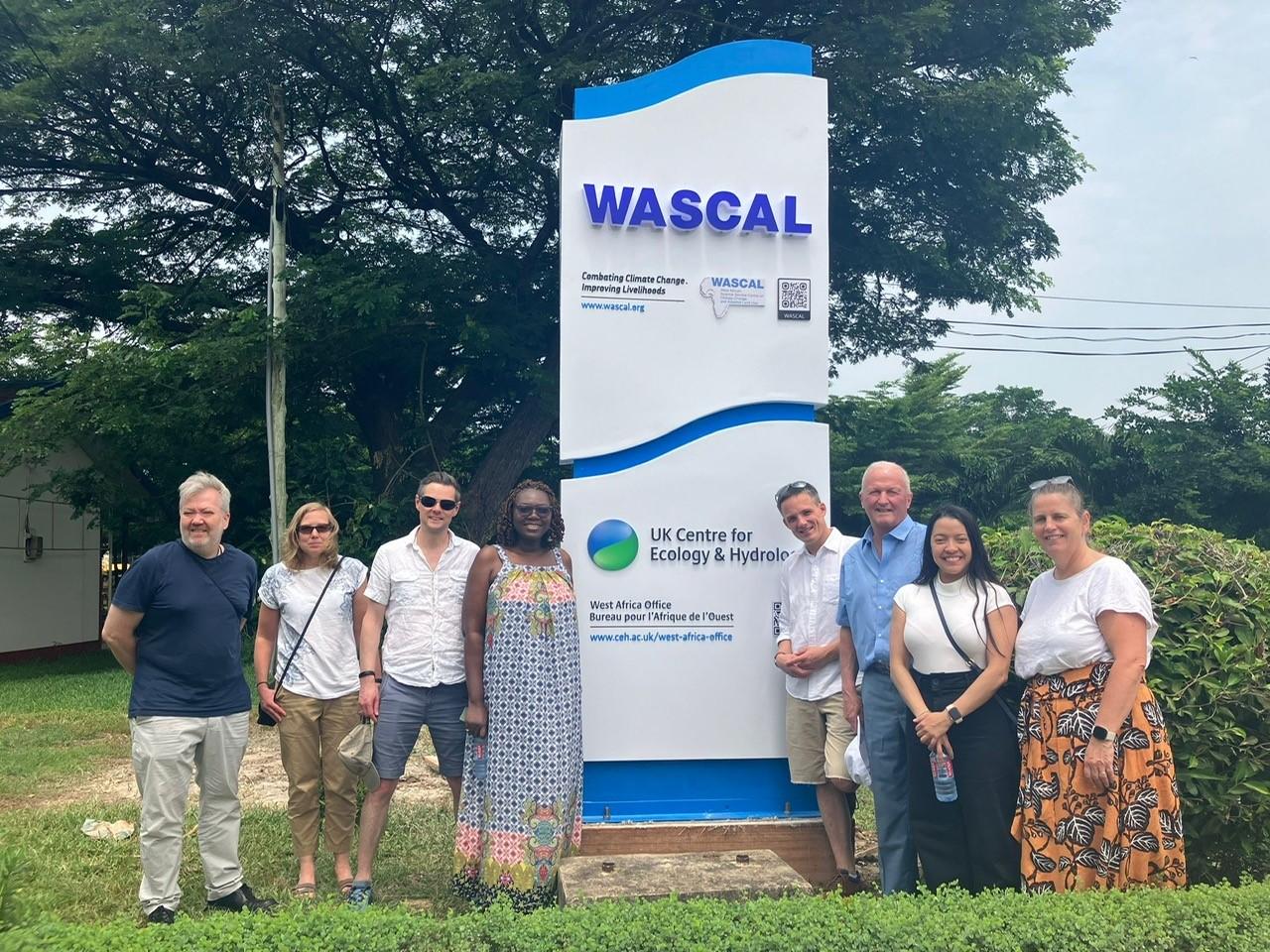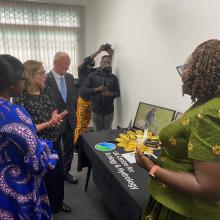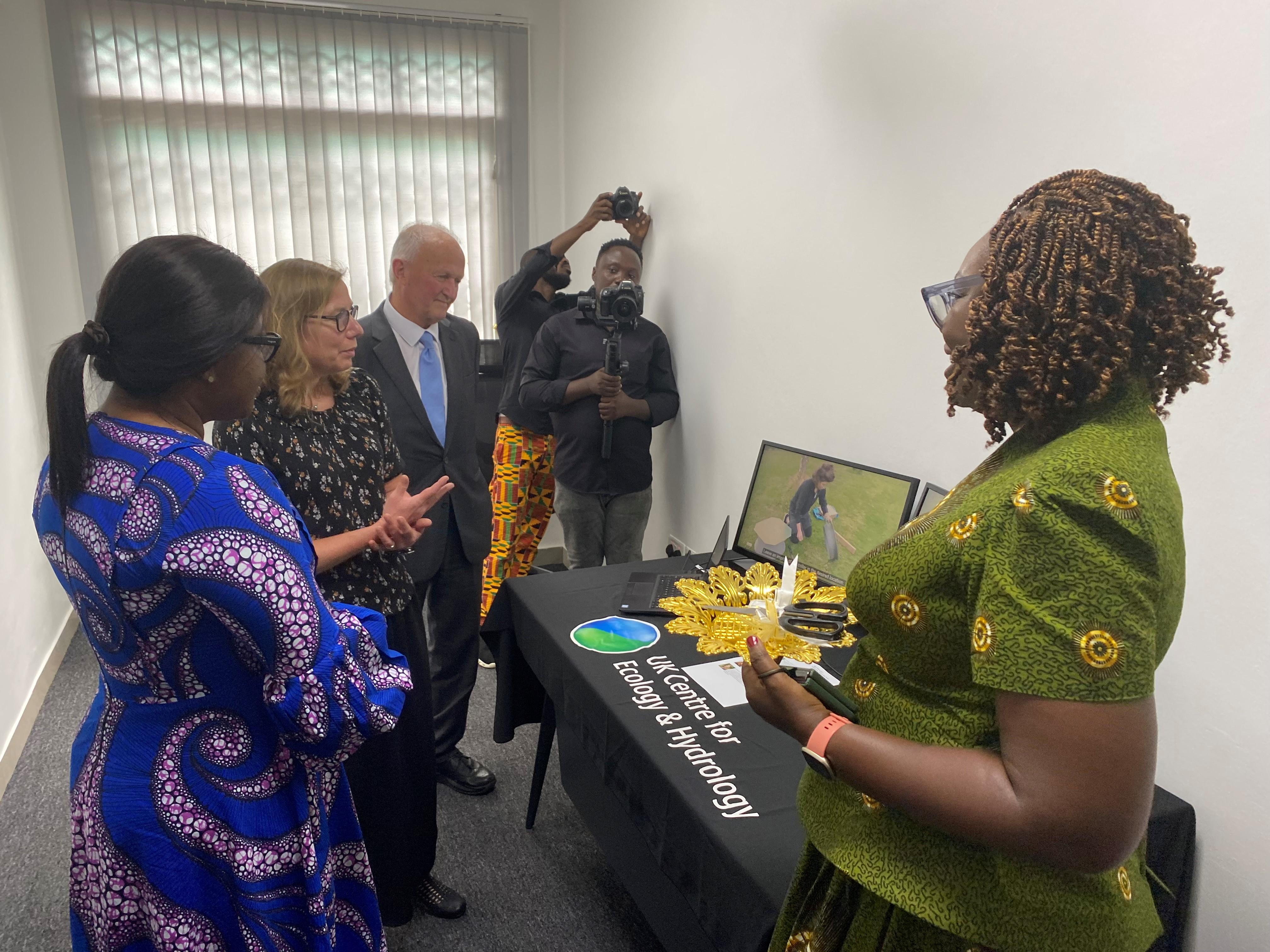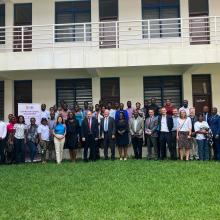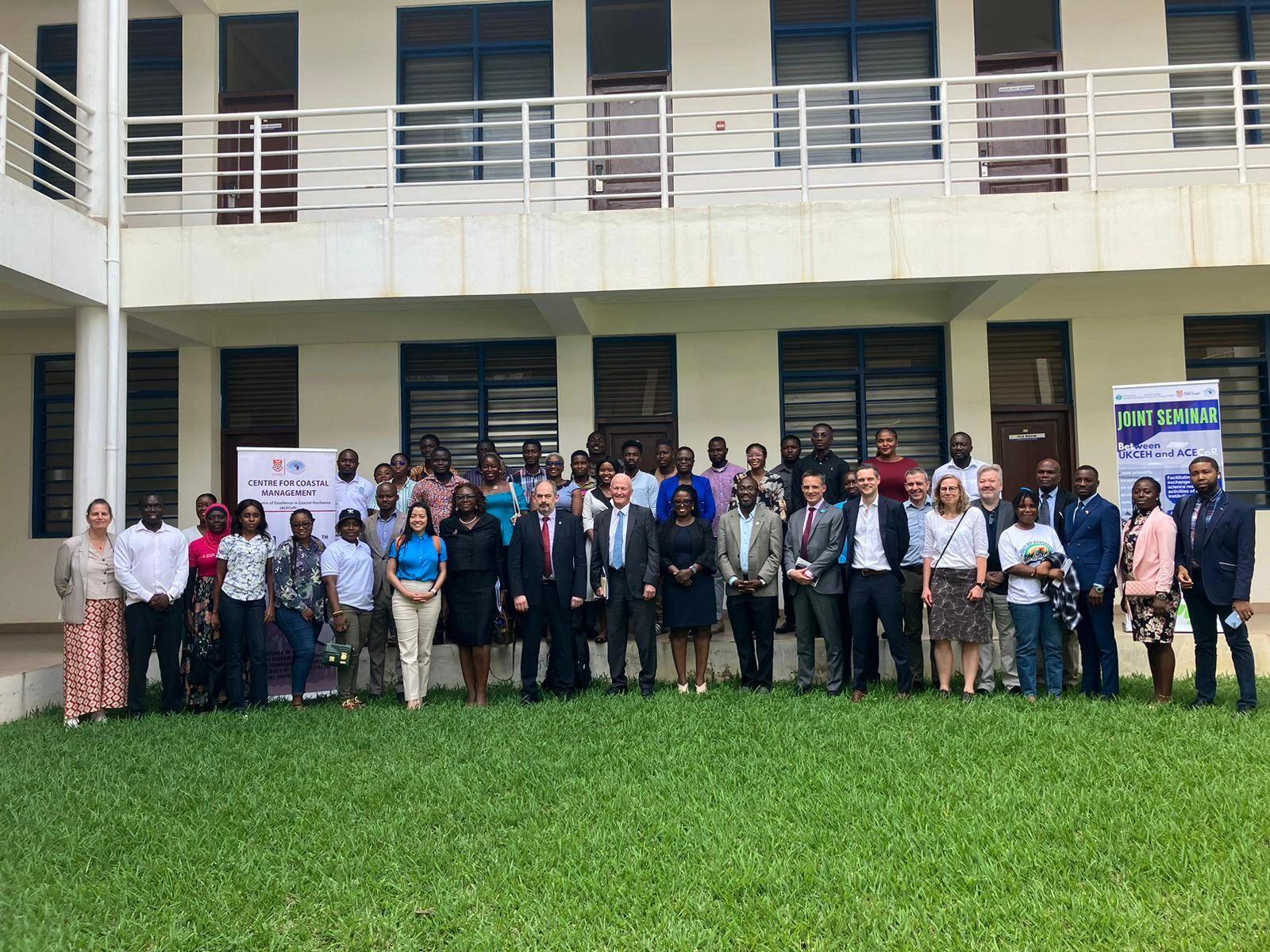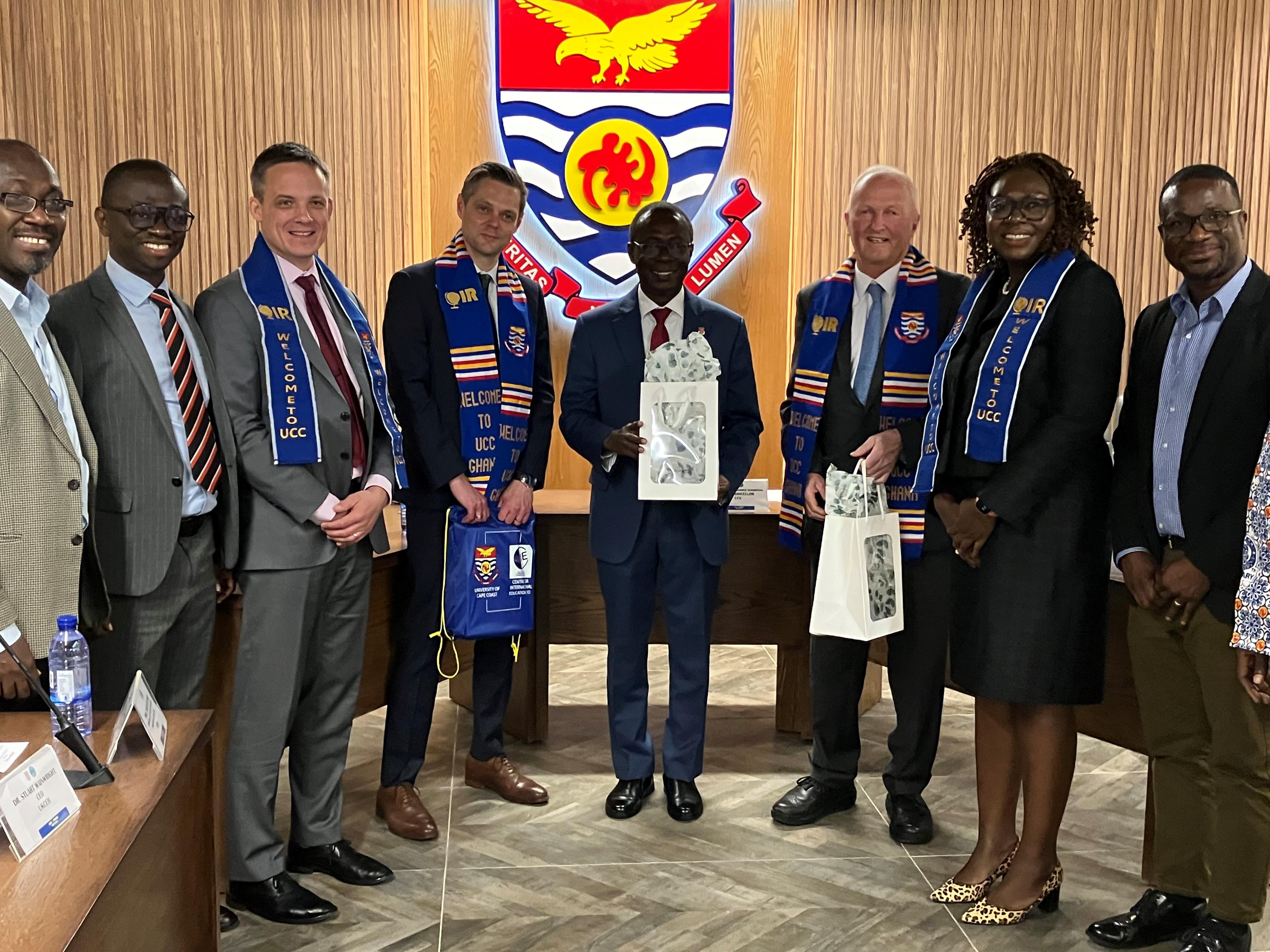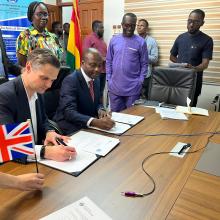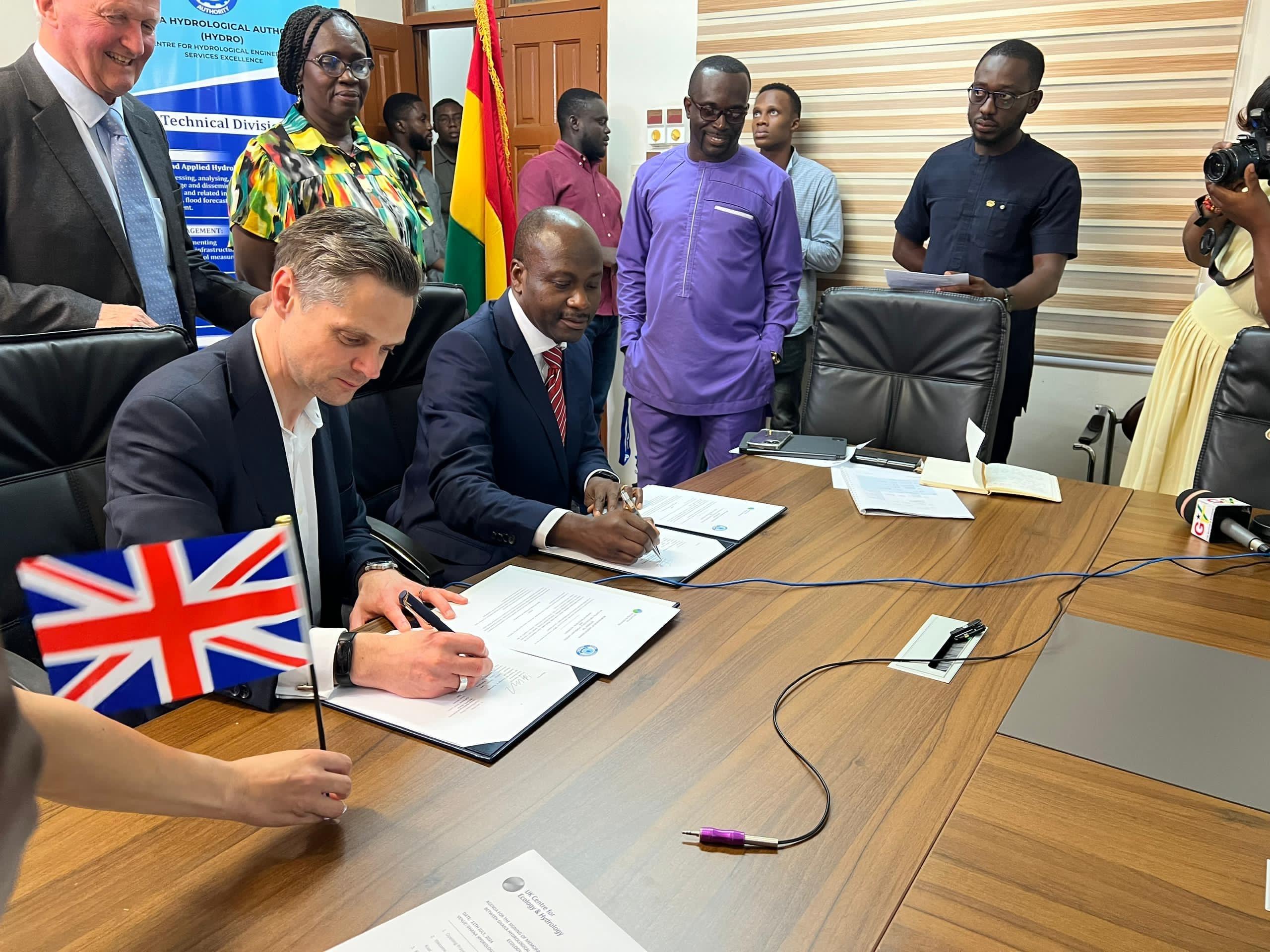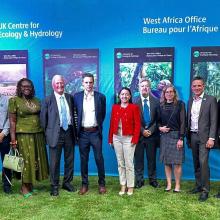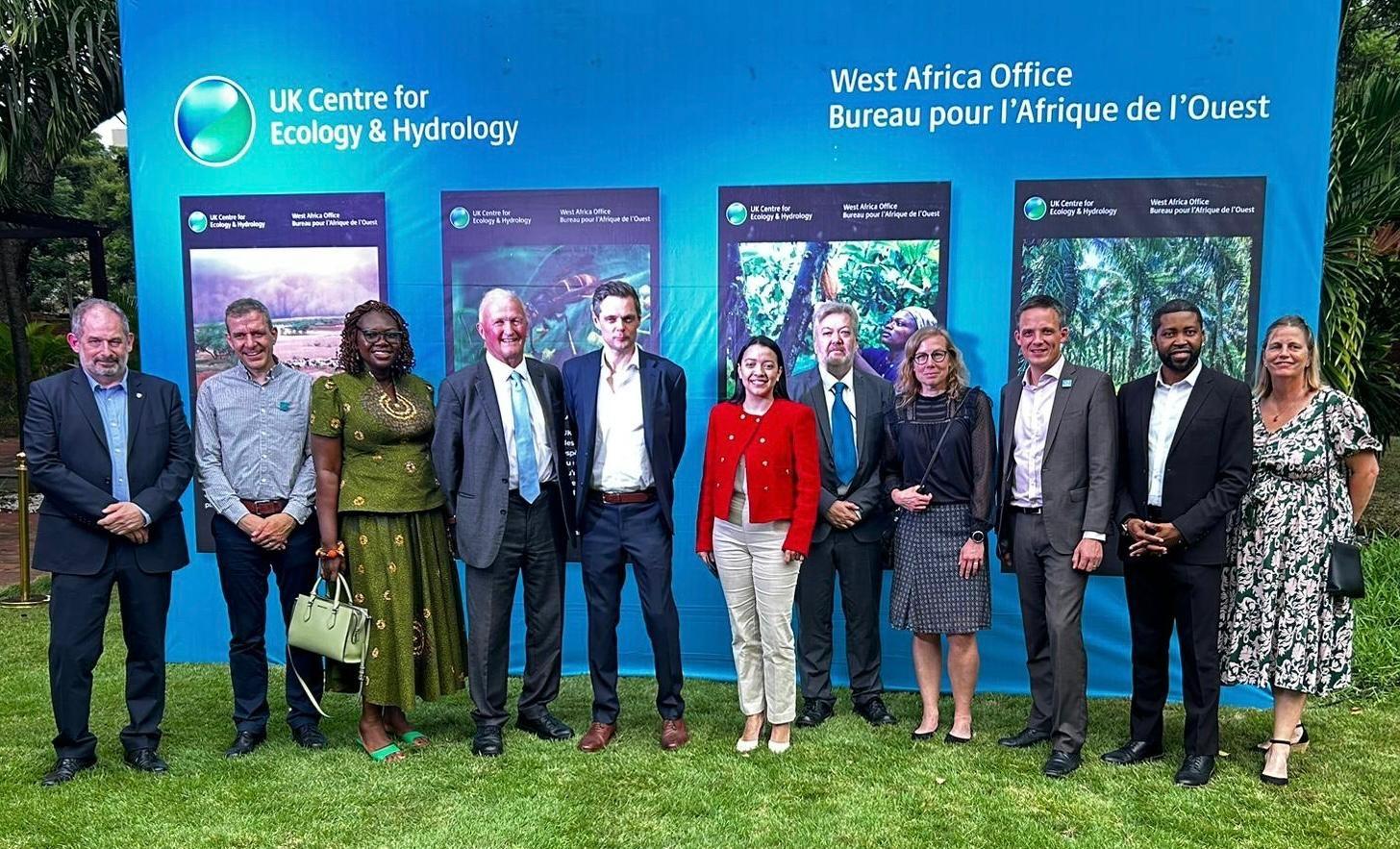This week has seen the opening of UKCEH’s first international office, in Accra, Ghana. This is a significant milestone for the organisation and UK science as a whole, as the new office will facilitate world-leading partnerships to tackle pressing environmental challenges.
From climate adaptation to biodiversity loss, the combined capabilities of UK and West African scientists are needed to underpin new solutions. As part of UKCEH’s drive to expand the use of its science globally, it is expected that our West Africa office will become a hub for environmental science in the region working together to deliver world-leading science and generate solutions to shared environmental challenges.
The official launch event on Wednesday 10 July brought together over 100 academics, researchers and representatives from key environmental research institutes and organisations for a colourful ribbon cutting ceremony.
The keynote address was given by the Hon. Ophelia Mensah Hayford, Ghana's Minister for Environment, Science, Technology, and Innovation, who also officially opened the office with Lord Cameron of Dillington, Chair of UKCEH Board of Trustees. The minister then toured the building, hearing from UKCEH scientists about their cutting-edge research and how this is leading to positive impact.
A follow-on science engagement meeting provided the opportunity for researchers to hear about some of the UKCEH science projects already having an impact in the region as well as allowing for discussion on exciting opportunities for future collaborations. The Deputy British High Commissioner, Keith McMahon MBE, hosted a networking reception in the evening where discussions continued.
Speaking at the launch, UKCEH Chief Executive Dr Stuart Wainwright said: “The opening of our West Africa office demonstrates our long-term commitment to the region. We want to establish lasting equitable partnerships across the public and private sectors to produce impactful research and solutions to major environmental challenges – such as climate change, biodiversity loss, pollution, and water availability.”
Dr Wainwright added: “By combining our excellent environmental science with local knowledge and expertise in regions such as West Africa, we can make a massive difference in tackling the major environmental problems of our time.”
Sharing expertise and strengthening relationships
Alongside the launch activities, the UKCEH delegation, along with close partners from Lancaster University, met representatives from many key organisations in Ghana to strengthen existing partnerships and explore opportunities for future collaborations. UKCEH scientists Dr Steven Cole, Dr Julia Drewer and Dr Stephen Lofts provided insight on the science areas they are working on covering the forecasting of extreme weather (NowCasting) and floods, greenhouse gas emission monitoring on oil palm production, and pollution in soil and water.
Discussions took place with organisations including University of Cape Coast, West African Science Service Centre on Climate Change and Adapted Land Use (WASCAL), British High Commission, UN Resident Coordinator in Ghana (UNESCO, UNEP, UNDP and UN Women), CSIR (Council for Scientific and Industrial Research) and its institutes, Ghana Hydrological Authority, Ghana Meteorological Agency and the University of Liberia. All these organisations were represented at the launch event providing congratulatory messages of support.

